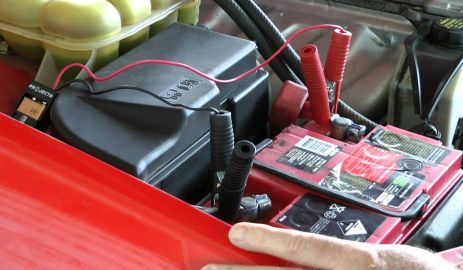
How Often Should You Look at Changing Your Car Battery?
The battery is one of the most important components of a modern car engine, yet it is also one that is most commonly overlooked. According to motoring organisations such as the RAC and the AA, battery problems are the leading cause of breakdowns.
As cars have become ever more sophisticated, so the strain on the battery has increased dramatically. In addition to providing the power to start the engine, a battery now has to power the entertainment system, air conditioning, electric windows, heated seats, satellite navigation device and Bluetooth phone kit.
Despite these increased demands, batteries themselves have relatively few changes to the way they look and operate. Despite the many innovations in the field of automotive engineering, the typical lead-acid car battery in use today is virtually identical to those fitted to vehicles manufactured 50 years ago.
Charging
A battery typically lasts around four years before it needs to be replaced but, depending on where you live and how you drive, your battery may last longer or give out much sooner. If you use your car mainly for short journeys such as going to the local shops or dropping the kids off at school, you will wear the battery out far more quickly than the average user as the engine will not be running for long enough to replace the big jolt of energy required to start the engine.
If, however, your car is mostly used for long motorway journeys and is kept in a garage overnight, protecting it from the worst of the extremes of weather, your battery may last far longer. Batteries can also fail due to electrical faults, which lead to over or under-charging.
In many cases, alarms and other computerised monitoring systems can remain active even when the engine is turned off. If a car is left standing for a long period of time, whilst it’s at an airport car park when you are on holiday, for example, this low level of discharge can be enough to completely drain a battery that is on its last legs by the time you get back.
Power
One particular difficulty is that there is no effective way to determine how much life a battery has left in it. Whilst tests can show a battery is producing the correct amount of power at the time the measurements are taken, this does not take into account the kind of changes in chemical composition inside a battery that can lead to sudden failure.
Replacing your battery every three to four years will ensure you are unlikely to run into any problems or experience an unexpected failure, no matter what pattern of usage you put your vehicle through. Inspect your battery whenever you look under the bonnet of your car. Signs of corrosion or staining could indicate a leak and mean your battery needs to be replaced early.

